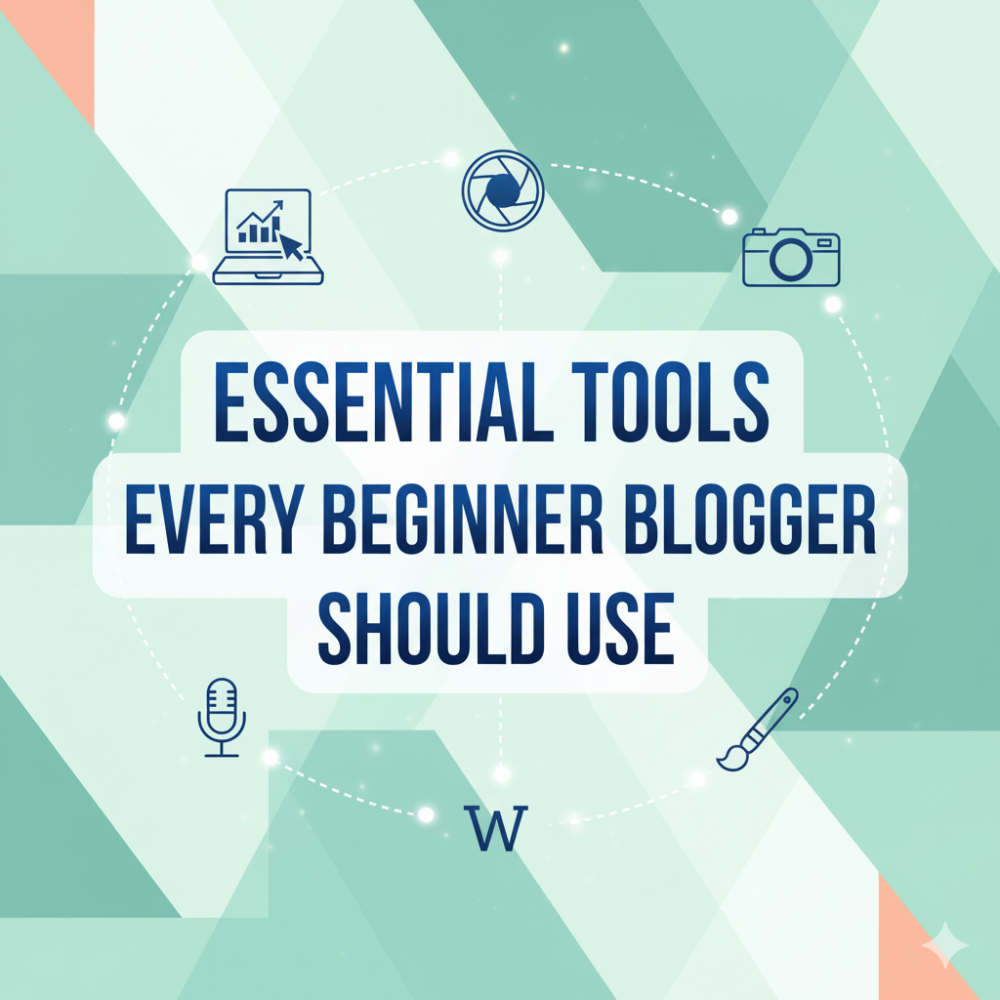Launching a blog is thrilling, much like unlocking the entryway to your own small space on the internet. But here’s the catch, it’s not just about typing out a few thoughts and hitting publish. Blogging is a mix of creativity, organization, and, yes, the right set of web content management tools. Without them, you’ll probably burn out faster than you expect. The good news is you don’t need a tech degree or a huge budget but just the willingness to experiment with some tools that make your journey easier (and honestly, a bit more fun).
Writing and Editing Tools
Every blogger, no matter how confident, stumbles with typos and clunky sentences. That’s where Grammarly comes in, it’s like having a patient teacher hovering over your shoulder, catching mistakes before readers do. Meanwhile, Hemingway Editor nudges you to cut out the fluff and get to the point.
And don’t overlook the humble Google Docs. It may not feel flashy, but it saves your work automatically, lets you collaborate and won’t crash on you mid-sentence.
Content Planning and Organization
Let’s be real, staring at a blank screen and thinking “What should I write this week?” is every beginner’s nightmare. Tools like Trello and Notion take away that chaos. They let you map out your posts, track deadlines, and store those random midnight ideas.
Consistency is what separates casual hobbyists from actual bloggers. Possessing a plan not only helps you stay organized but also protects you from those frantic writing sessions at the last minute (we’ve all experienced it).
SEO Tools for Visibility
Here’s the harsh truth: even the best blog post won’t matter if no one ever finds it. That’s where SEO tools come in. Plugins like Yoast SEO (for WordPress) or Rank Math hold your hand through the basics keywords, meta descriptions, readability. It’s like having training wheels for SEO.
For research, tools like Google Keyword Planner or Ubersuggest help you figure out what people are actually searching for. Otherwise, you might end up writing brilliant posts that no one ever Googles (ouch).
Graphic Design and Visual Tools
A blog post without visuals is like coffee without sugar which is still fine, but not nearly as satisfying. Canva makes it ridiculously easy to create graphics that look professional without hours of design work. You can whip up headers, infographics or social media posts in minutes. Combine that with complimentary image repositories like Unsplash or Pexels, and instantly your blog appears refined, rather than basic. People really do judge a book (or blog) by its cover, so visuals are worth the effort.
Website Management Tools
If you’re using WordPress, plugins are your secret weapon. Tools like Akismet handle spam while caching plugins keep your site running fast. And yes the site speed matters. Nobody likes waiting around for a blog to load, especially when another one is just a click away. Not into the tech side of things? Platforms like Squarespace or Wix make website management easier. Drag, drop, publish and it’s blogging without the headaches.
Social Media and Promotion Tools
Here’s something beginners often forget: publishing a post is only half the job. You need to promote it too. Platforms like Buffer or Hootsuite allow you to plan posts for various channels, eliminating the need to share manually each time. And don’t underestimate email marketing. A tool like Mailchimp helps you build a subscriber list and send newsletters. Social media algorithms change all the time, but your email list? That’s yours.
Analytics Tools for Growth
Want to know if your blog is actually working? That’s where Predictive analytics tools like Google Analytics plays a role. It informs you about the visitors, what they are reading, and the duration of their stay.
Initially, the information may seem daunting (bounce rate, session duration… what?), but as you become more familiar, you’ll discover trends that influence your upcoming posts. Basically, analytics turns blogging from guesswork into strategy.
Staying Focused and Motivated
Here’s the part no tool can fully solve motivation. Blogging is a marathon, not a sprint, and staying consistent is tough. Even simple tools like Pomodoro timers can help sustain concentration when distractions occur. Ultimately, tools exist to assist you, not to take the place of the enthusiasm driving your blog. If you’re passionate about your writing, readers will sense it, and that’s something no application can imitate.
Conclusion
The right tools won’t instantly transform you into a leading blogger, but they will definitely simplify the process. From Grammarly to Canva, Yoast SEO to Google Analytics, every tool addresses a need you might otherwise have difficulty managing. Consider them your blogging tools that are dependable, functional, and designed to evolve alongside you. Keep in mind that every professional blogger you look up to began as a novice, struggling with drafts and learning to use plugins. The distinction lies in their perseverance, mastering the essentials, and utilizing the appropriate resources to improve. You can do the same.
